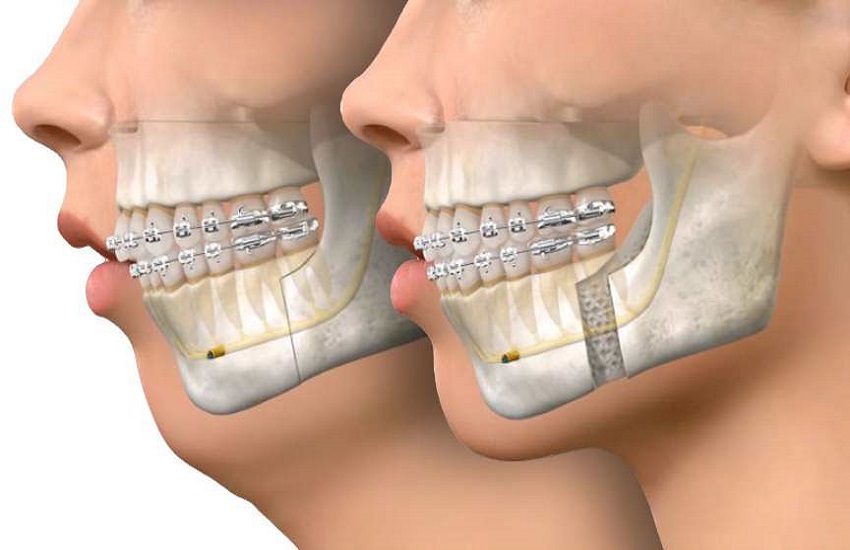Jaw Cysts And Tumors
Jaw cysts, non-cancerous pouches containing fluid, can form under the skin, in the mouth lining, saliva glands, or jawbones. Types include periapical cysts around tooth roots from chronic infection, dentigerous cysts around uninterrupted teeth, and odontogenic cysts from tooth-forming cells.


About Jaw Cysts And Tumors
Jaw cysts and tumors are abnormal growths that can develop within the jawbone or the soft tissues of the mouth and face. While not always harmful, they can cause complications if they grow too large or become infected. Cysts are fluid-filled sacs that can form in various areas, including around the roots of teeth, within the jawbone, or under the skin. They are typically non-cancerous but can cause pain and discomfort if infected. Tumors, on the other hand, are abnormal growths of tissue that can be either benign or malignant. Benign tumors are usually non-cancerous and may not require treatment unless they cause symptoms or affect jaw function, while malignant tumors are cancerous and require prompt medical attention. Proper diagnosis and treatment by a healthcare professional are essential for managing jaw cysts and tumors effectively.
FAQs:
How Are Jaw Cysts Diagnosed?
Jaw cysts often grow slowly without symptoms and are typically found incidentally on x-rays. Infected cysts can cause pain. Diagnosis involves examination, x-rays, and sometimes a CT scan for better visualization.
How Urgent Is It To Treat It?
Neglecting cysts can lead to significant consequences. They can grow to a size that damages nearby teeth, causing them to loosen. In extreme cases, large cysts can expand the jaw to the point of weakening it, possibly resulting in a fracture. This neglect can also cause permanent disfigurement or loss of function.
How Are Jaw Cysts Treated?
Cysts are typically treated by removal, which involves making a small incision inside the mouth and removing part of the bone in most cases. However, in some instances, an incision outside the mouth may be necessary due to the size or location of the cyst. In rare cases where cysts are very large, surgical decompression may be an option.
After the surgery, the removed cyst is sent to a specialist pathologist for microscopic examination to confirm the diagnosis.
What Type Of Anesthetic Will Be Used?
jaw cyst treatment depends on factors such as cyst size, location, your overall health, and past dental experiences. Your surgeon will provide detailed instructions for preparation, including:
- Advising smokers to quit to reduce infection risk and aid recovery.
- Special considerations for certain medications.
- If undergoing local anesthesia, you can eat and drink normally beforehand, but lightly. It’s advisable to have someone accompany you, although you can drive yourself.
- For general anesthesia, fasting instructions will be provided, meaning no eating or drinking for a specified period before the procedure. Specific instructions will be given before your admission date.
What Happens After Surgery?
The type of anesthesia required for jaw cyst treatment depends on factors such as cyst size, location, your overall health, and past dental experiences. Your surgeon will provide detailed instructions for preparation, including:
- Advising smokers to quit to reduce infection risk and aid recovery.
- Special considerations for certain medications.
- If undergoing local anesthesia, you can eat and drink normally beforehand, but lightly. It’s advisable to have someone accompany you, although you can drive yourself.
- For general anesthesia, fasting instructions will be provided, meaning no eating or drinking for a specified period before the procedure. Specific instructions will be given before your admission date.
Risks & Complications
After jaw cyst removal, expect some initial discomfort, facial swelling, bruising, pain, or jaw stiffness for up to two weeks, peaking in the first two or three days and then gradually improving.
- Avoid vigorous rinsing for the first 24 hours, then rinse gently after meals with warm salt water.
- Brush teeth normally, but avoid the healing wound for the first few days.
- Start with soft foods, gradually returning to your usual diet as your jaw feels more comfortable.
Jaw cyst removal is generally safe, but it’s important to understand the potential risks and complications. These can include bleeding, infection, damage to other teeth or the jaw during surgery, numbness or taste changes in the lower lip or tongue, and jaw stiffness. Risks vary for each person, so your surgeon will assess and advise you accordingly during your initial consultation.
